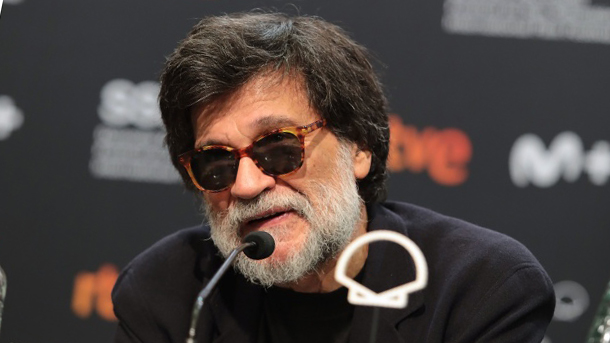Spanish Master Victor Erice Receives Standing Ovation at Press Conference for his San Sebastián Donostia Award

SAN SEBASTIAN — Legendary Spanish writer-director Victor Erice received a standing ovation from a packed press conference on Friday, ahead of receiving the festival’s Donostia Award tonight.
The award ceremony for San Sebastian’s accolade for career achievement follows on from the San Sebastian screening this morning of his first feature film in 30 years, “Close Your Eyes,” which, already pre-sold to France’s Haut et Court, world premiered in Cannes Premiere in May with the Basque director notably absent.
“Close Your Eyes” sparked highly positive reviews. 30 years ago, Erice won the Cannes Jury Prize for his film “Dream of Light.”
Erice fielded questions from the press on Friday before the “Close Your Eyes” team joined him on stage.
“What I achieve in my work is trying to give the best of myself,” Erice told reporters. “Fate is key in an industrial art like cinema. Fate intervenes in filmmaking, but I think fate improves what you have written. When you make a film you have a living being. All stages of filmmaking have to incorporate creative factors, and it should not be an inert process. Fate or chance is important in how I improvise.”
The Donostia Award for Erice marks several milestones.
It is the first time the Award goes to a Basque director. It is being awarded in the same cinema, the Kursaal, where Erice saw his first film. Tonight’s award will also be presented by Ana Torrent on the 50th anniversary of “The Spirit of the Beehive,” Erice’s masterpiece feature, which starred Torrent, aged six. It went on to win San Sebastian’s Gold Shell.
During the Conference, Erice talked philosophically about the filmmaking process.
“Cinema has given me and people of my generation, in times of misery and lack of freedom, the ability to become citizens of the world for a few hours. We could also decide who our teachers were going to be,” he said.
Erice spoke both about his own work and how filmmaking has changed.
“It was never the goal of my projects to make art. It happens or it doesn’t happen. That’s the way of creation,” he said.
As for technology, Erice, who teaches film, said: “Currently films are distributed in a whole new way that I call the audiovisual world. Cinemas are a residue of the old world. Studios have a need to occupy all spaces from tablets to phones, and that changes the essence of watching films which is contemplation. You would stop doing what you were doing and meet others at the cinema before. Technology has led to the contemplation of films being in your dining room which isn’t the same. I defend the public experience of watching a film instead of all staying in our corners with our devices.”
Erice is a legend.
“The Spirit of the Beehive” is regarded by many critics as one of the greatest Spanish films ever made. “Light” was chosen by the world’s cinematheques as the best film of the 1990s.
“The epic legend is fine as a marketing element,” he said. “I haven’t made a [feature] film for 30 years. I’ve done so much outside feature films. I think the vitality of the film world happens in the periphery.”
His latest film “Close Your Eyes” turns on a famed actor who disappears while making a film. Police conclude it’s an accident by the sea, until many years later, the mystery of his disappearance is brought back into the spotlight when a TV program, made by friend, shows the beginning and the end of the movie.
Erice did not attend the premiere of the film in Cannes following an angry, open letter he penned in Spanish daily El Pais, complaining threat Cannes had not alerted him that the film would not make its main competition.
Erice’s first feature film, “Los Desafíos,” a three-part anthology produced by Elías Querejeta and presented by Erice at the 1969 San Sebastián festival, helped give San Sebastian a social-issue edge
But Erice is also giving to the future, as well as lending himself to the past.
“When I teach cinema, it’s a good opportunity for me to talk about the challenge of new technologies. Young people have the challenge of creating images in a world of images that’s highly polluted. I think it’s harder for them than it was for me,” he said.
Read More About:
Source: Read Full Article